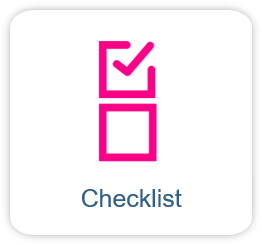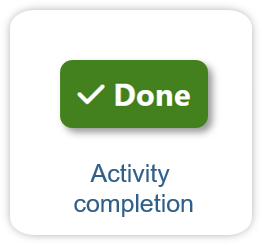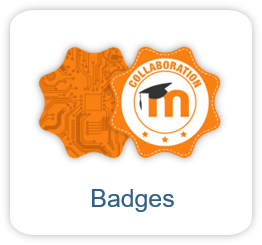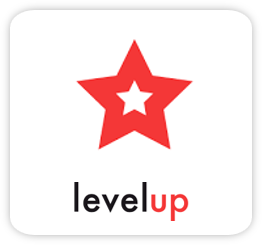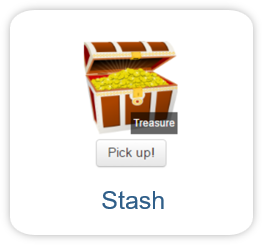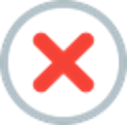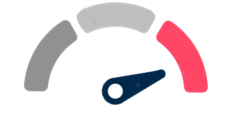Gamification options

Gamification increases learning motivation and engagement by showing visible progress, offering rewards and recognition and encouraging the achievement of goals. These playful elements make the learning process more interactive and engaging. A number of different gamification tools are available in RWTHmoodle:
- Checklist: To-do list of tasks or goals for learners. Students can check off the tasks they have completed and see which ones are still open.
- Activity Completion: Teachers set criteria that must be met for an activity to be considered complete. This can help to track learning progress and give students feedback on their progress.
- Badges: Learning badges that can be awarded to learners for their achievements or progress in a course room. They serve as a reward and motivation for learners and can symbolize specific skills or achievements.
- Level Up!: Learners collect experience points by completing various activities or reaching certain goals. The more points they collect, the higher they rise in the levels.
- Stash: Collecting and exchanging objects in the course room to increase motivation and integrate narrative elements.
- What tools are available in RWTHmoodle that are used for gamification?
- Gamification tools in comparison
Note
Every two months, the CLS offers a training course on gamification and game-based learning, which explains the various gamification tools available in RWTHmoodle and their configuration options in more detail. Further information on the training and registration can be found in the Staff Development Events Database.
In addition, a MoodleCafé on Gamification Best Practices took place in the winter semester 2024/25, in which two RWTH lecturers presented successful implementations of gamification from their teaching practice. The recording of this session, as well as all other MoodleCafé recordings, is available in the MoodleCafé course room. You can enroll in this course room at any time and watch the recordings there afterwards
1. What tools are available in RWTHmoodle that are used for gamification?
1.1. Checklist
- Activity Checklist
- With the Checklist activity, lecturers can create a “to-do” list that students can work through. The Checklist provides a simple visual representation of what has been achieved so far.
- Elements of the Checklist can be activities of the course room as well as independent elements that are not based on a specific activity in the course room and can be added manually by lecturers and/or students.
- The elements of the Checklist can be checked off by the students and/or automatically as soon as an activity has been successfully completed.
- Instructions for configuring and using the Checklist
- Add-on for the Checklist - Block Checklist
- In addition to the Checklist, you can integrate a visual progress indicator in the right-hand block bar. This informs students about the current progress status of the underlying Checklist.
- This makes it easy for students to see to what extent the elements of the Checklists have already been completed.
- The individual elements of the selected Checklist and their processing status can be called up by clicking on the progress bar.

- Instructions for configuring and using the Block Checklist
1.2. Activity Completion tracking
- Activity Completions
- Activity Completions can be defined individually for each activity. You can choose between three options:
- Completion is not displayed - The activity completion for the activity is not activated and is therefore not displayed to students.
- Completion is marked manually - The completion of the activity is marked manually by the students, regardless of the actual processing status. This setting is the default in RWTHmoodle for newly added activities.
- Completion when all conditions are met - Conditions can be configured to mark the automatic completion of the activity as soon as the conditions are met, e.g. receiving a grade or reaching a passing grade.
- Instructions for configuring and using Activity Completion
- Activity Completions can be defined individually for each activity. You can choose between three options:
- Add-on for Activity Completion - Block Completion Progress Bar
- In addition to completion tracking, you can optionally add the “Completion Progress” block. This provides students with a visual overview of all (or optionally some) activity completions in the course room.
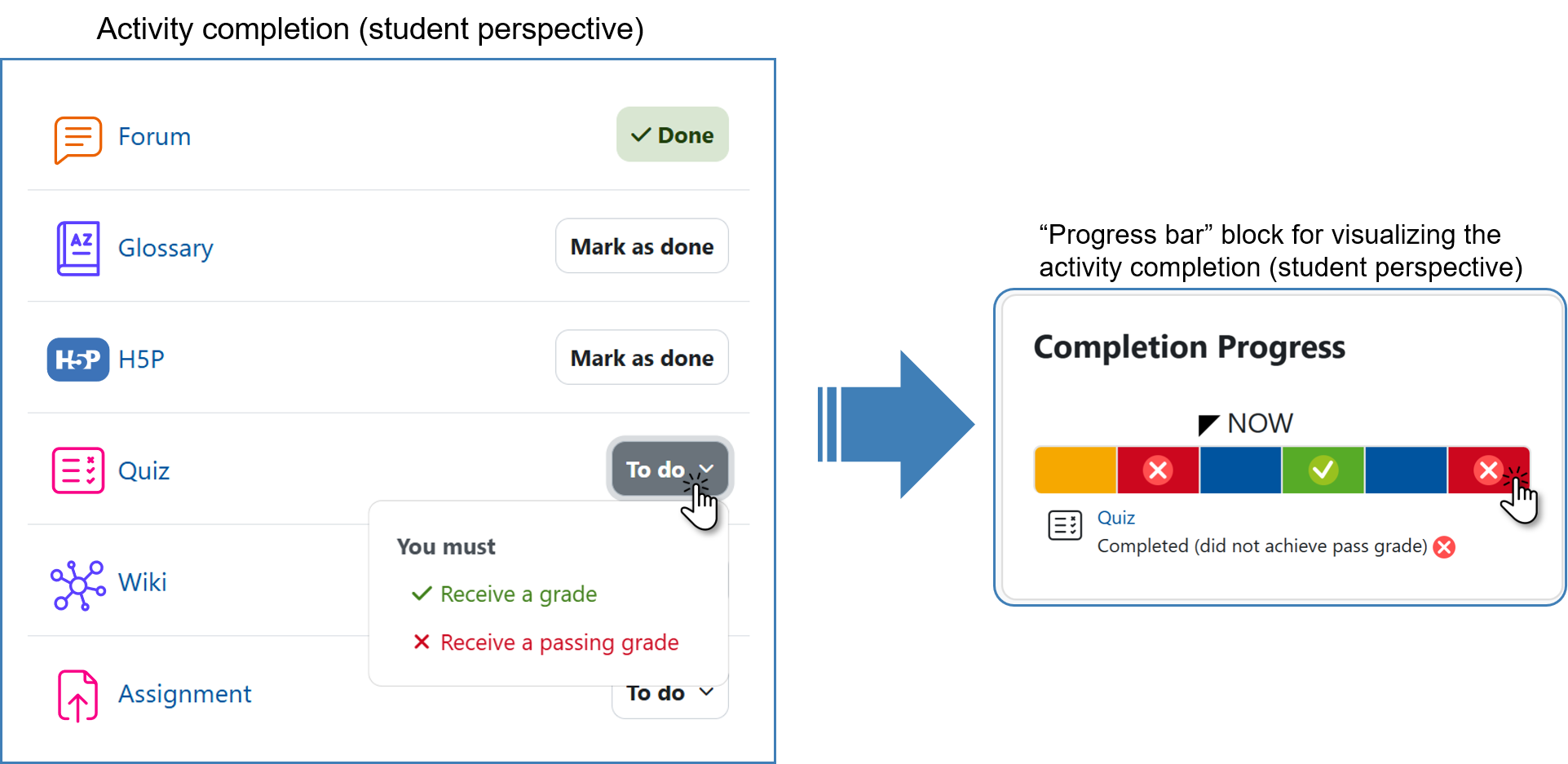
- Instructions for configuring the “Completion Progress Bar” block
- In addition to completion tracking, you can optionally add the “Completion Progress” block. This provides students with a visual overview of all (or optionally some) activity completions in the course room.
1.3. Badges
- Badges are digital learning badges that demonstrate the possession of certain knowledge and skills.
- In RWTHmoodle, for example, badges can be awarded after the successful completion of one or more activities.
- In addition to a graphic symbol, a badge also contains a range of information in the form of metadata that provides information about what the recipient has learned.
- From a gamification perspective, badges serve to increase the motivation and commitment of learners.
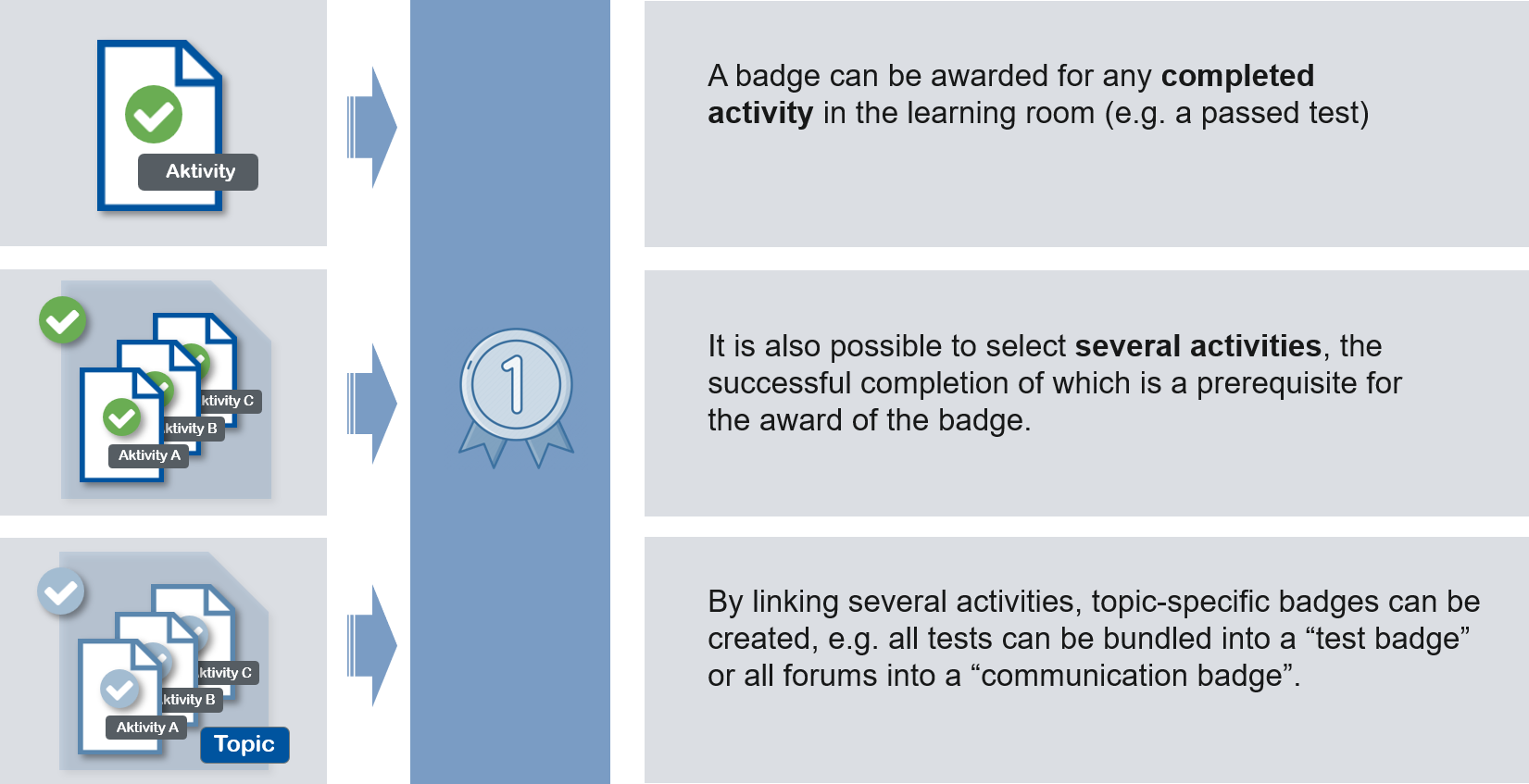
- Instructions for configuring Badges
1.4. Level up!
- The gamification tool LevelUp! offers the possibility to integrate experience points, levels and anonymous ranking lists
- By completing certain activities (e.g. clicking on a video, submitting a solution, having a quiz attempt being graded), students collect experience points.
- As the number of experience points increases, students gradually reach higher levels. The levels are visualized by badges and a progress bar.
- When the student moves up a level, new learning content or sections in the course room can optionally be unlocked.
- Levels are a playful element to increase student motivation.

Note
The “Level Up!” plugin is currently in pilot operation and can be activated in any course room by the RWTHmoodle administrator if required. If you are interested in using Level Up!, please contact the IT-ServiceDesk. Please state the title and course number of the desired course.
1.5. Stash
- Create and hide items: Lecturers can create different items and place them in specific locations in the course room to encourage student motivation.
- Collecting items by students: Students can find these hidden items and collect them in their personal inventory, the “stash”.
- Trade mechanisms: The plugin makes it possible to set rules for the exchange of collected items, allowing students to trade items for other resources.
- By collecting and exchanging items step by step, students can be involved in a coherent story. This creates an immersive learning experience
- Access restrictions based on collected items: Lecturers can use access restrictions to make access to certain course room content dependent on whether students have collected certain items.
- Depending on the structure and design, this promotes motivation as well as an understanding of the components of the overall product created.
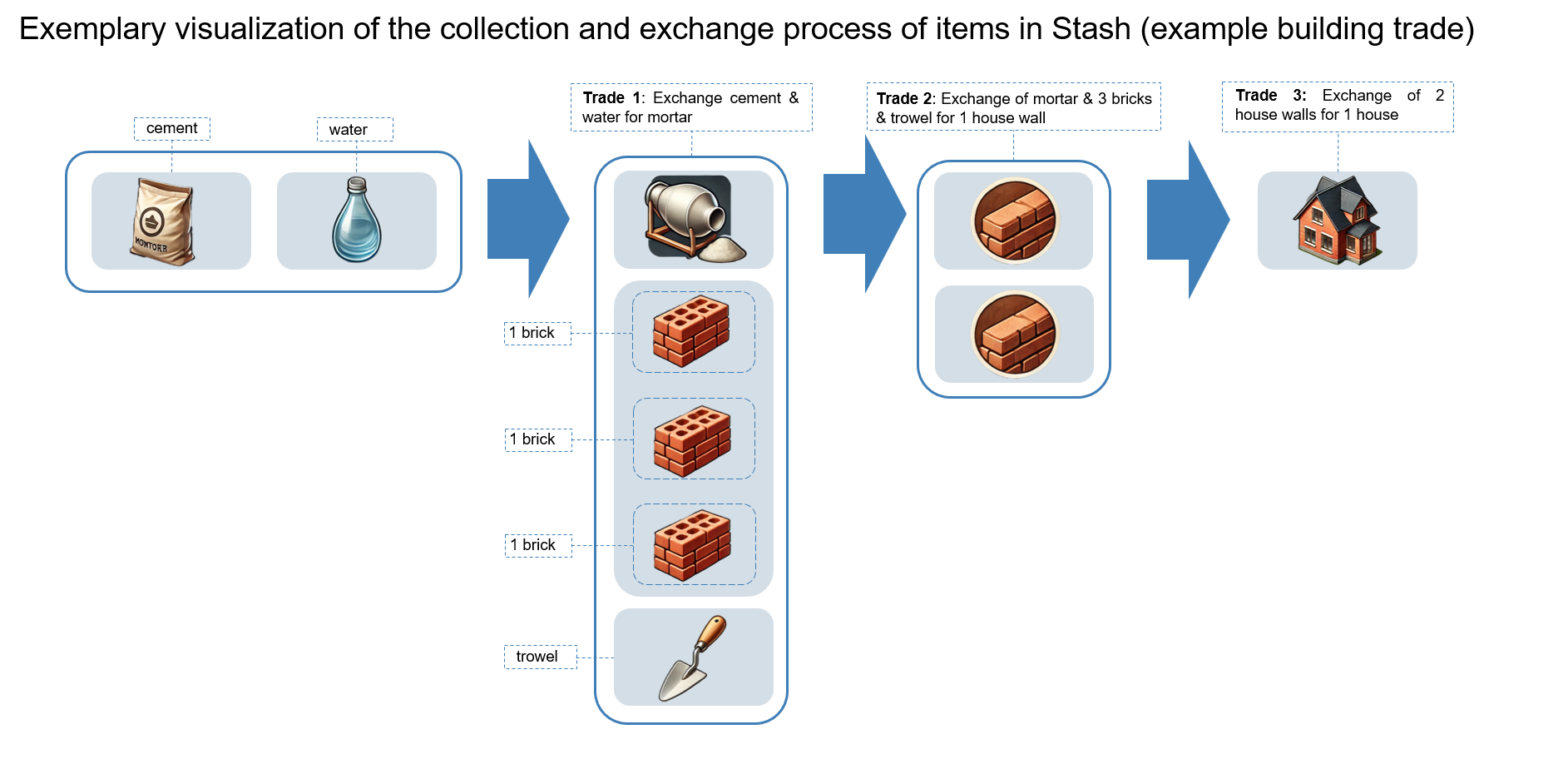
Note
The “Stash” plugin is currently in pilot operation and can be activated in any course room by the RWTHmoodle administrator if required. If you are interested in using Stash, please contact the IT-ServiceDesk. Please state the title and course number of the desired course.
2. Gamification tools in comparison

